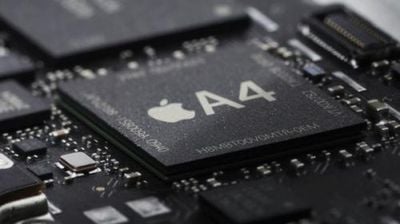Apple's iPad Chip Development Cost Estimated in $1 Billion Range
In an
article from
The New York Times, the cost for a company like Apple to develop an ARM-based mobile chip such as the A4 used in its forthcoming iPad tablet is estimated at approximately $1 billion, even without the need to invest in manufacturing facilities for the chips due to agreements with existing chip foundries for production.
At the same time, Apple, Nvidia and Qualcomm are designing their own takes on ARM-based mobile chips that will be made by the contract foundries. Even without the direct investment of a factory, it can cost these companies about $1 billion to create a smartphone chip from scratch.
Chip industry expert Fred Weber notes in the report that Apple's iPhone was the first "really aspirational device" not based on Intel chips, demonstrating the power and versatility of ARM-based chip designs. The iPhone's success has consequently driven a surge of interest in the platform from other mobile vendors and even more traditional notebook vendors like HP and Lenovo looking to incorporate the power-saving yet capable chips into their products.
"Apple was the first company to make a really aspirational device that wasn't based on Intel chips and Microsoft's Windows," said Fred Weber, a chip industry veteran. "The iPhone broke some psychological barriers people had about trying new products and helped drive this consumer electronics push."
Apple acquired chip design firm P.A. Semi in early 2008, reportedly enabling Apple to pursue in-house ARM-based designs for system-on-chip platforms for the iPad and iPhone.
Popular Stories
Apple today confirmed to Reuters that it has acquired Q.ai, an Israeli startup that is working on artificial intelligence technology for audio.
Apple paid close to $2 billion for Q.ai, according to sources cited by the Financial Times. That would make this Apple's second-biggest acquisition ever, after it paid $3 billion for the popular headphone and audio brand Beats in 2014.
Q.ai has...
Apple today introduced its first two physical products of 2026: a second-generation AirTag and the Black Unity Connection Braided Solo Loop for the Apple Watch.
Read our coverage of each announcement to learn more:Apple Unveils New AirTag With Longer Range, Louder Speaker, and More
Apple Introduces New Black Unity Apple Watch BandBoth the new AirTag and the Black Unity Connection Braided...
Alongside iOS 26.2.1, Apple today released an updated version of iOS 12 for devices that are still running that operating system update, eight years after the software was first released.
iOS 12.5.8 is available for the iPhone 5s and the iPhone 6, meaning Apple is continuing to support these devices for 13 and 12 years after launch, respectively. The iPhone 5s came out in September 2013,...
Update: Apple Creator Studio is now available.
Apple Creator Studio launches this Wednesday, January 28. The all-in-one subscription provides access to the Final Cut Pro, Logic Pro, Pixelmator Pro, Motion, Compressor, and MainStage apps, with U.S. pricing set at $12.99 per month or $129 per year.
A subscription to Apple Creator Studio also unlocks "intelligent features" and "premium...
On an earnings call with equity analysts today, Apple CEO Tim Cook responded to fast-rising RAM and SSD storage chip prices in the supply chain.
Prices for RAM and NAND storage chips are surging lately due to high demand from companies building out AI servers, resulting in supply constraints.
Cook said that rising memory chip prices had a "minimal impact" on Apple's gross margin in the...




















